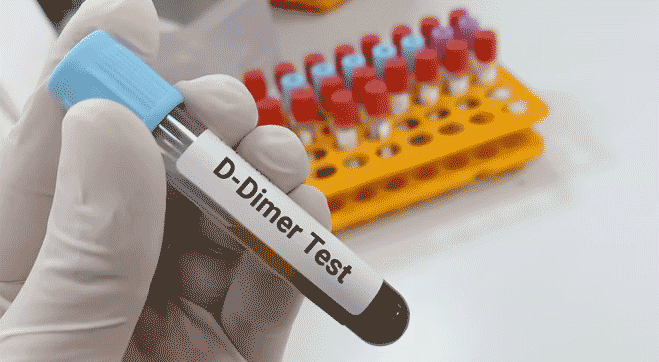What is D-dimer test ?
Protein is considered to be one of the prime building blocks of good health. The human body derives its protein requirements from both plant-based and animal-based sources. The compatibility of either of the aforementioned sources depends on what diet a person has followed for the better part of their life.
For the human body, a certain amount of protein in the bloodstream is as necessary as any other component. To gauge that these protein levels are maintained at an optimum level, the d-dimer test needs to be a part of most medical packages in today’s times.
A D-dimer is a fibrin degradation product. This is a small protein fragment that exists in the blood after a blood clot is degraded by fibrinolysis. It is thus named because it contains two D fragments of the fibrin protein joined by a cross-link. This can be seen by conducting a d-dimer test.
D-dimer concentration may be determined by a blood tests to help diagnose thrombosis. During plasma coagulation, soluble fibrin is generated. D-Dimers are released as characteristic degeneration products (FDP) of cross-linked fibrin. So, what is a D-dimer test? And what is the D-Dimer test normal range? Let’s identify the answer to both these questions in the next segment.
What is a D-Dimer Test? ‘ An Overview
A D-Dimer Test is a blood test that can be used to help rule out the presence of a significant blood clot.
When the human body is injured and there is a cut due to which blood flows, the body’s defense mechanism kicks in and stops the blood flow by thickening it. This is a standard part of healing and it happens within minutes. As a result the bleeding stops, and one does not need the clot any longer.
Hence the human body takes a series of steps in the other direction and breaks the clot down. At the end of all that, one is left with some leftover substances floating in one’s bloodstream This would be akin to having some stray sand dust all over after a building project. One of those leftovers is termed D-dimer. It’s part of a protein. Normally, with a little time, it goes away. According to most health experts, the d-dimer test normal range is when its value is less than 0.50, however, if the level is 500 nanograms per milliliter or higher, most laboratories consider it to be ‘abnormal’
However, one can get high levels of D-dimer in your blood if there is a serious clot following a big injury which may have resulted in severe blood loss. It would be highly detrimental to ignore elevated levels of D-dimer especially in today’s times as they are linked to serious illnesses including Covid-19.
There is a strong correlation between the D-Dimer Test and the COVID-19 virus. The COVID-19 virus is constantly mutating into multiple variants and thus results in new and rare symptoms like blood coagulation, during which case, D-Dimer test are needed on an immediate basis.








